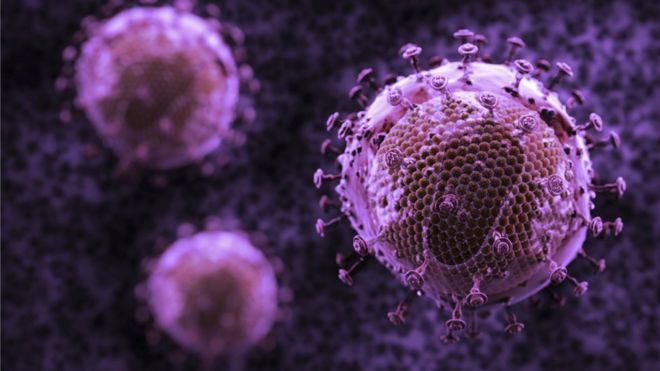An AIDS vaccine could be a reality soon. Johnson&Johnson received positive results from clinical trial of investigational drug! JNJ - Announcement
Navigation
Install the app
How to install the app on iOS
Follow along with the video below to see how to install our site as a web app on your home screen.

Note: This feature currently requires accessing the site using the built-in Safari browser.
More options
You are using an out of date browser. It may not display this or other websites correctly.
You should upgrade or use an alternative browser.
You should upgrade or use an alternative browser.
A cure for AIDS on the horizon?...

New antibody attacks 99% of HIV strains
22 September 2017 - Scientists have engineered an antibody that attacks 99% of HIV strains and can prevent infection in primates.

New antibody attacks 99% of HIV strains
22 September 2017 - Scientists have engineered an antibody that attacks 99% of HIV strains and can prevent infection in primates.
It is built to attack three critical parts of the virus - making it harder for HIV to resist its effects. The work is a collaboration between the US National Institutes of Health and the pharmaceutical company Sanofi. The International Aids Society said it was an "exciting breakthrough". Human trials will start in 2018 to see if it can prevent or treat infection. Our bodies struggle to fight HIV because of the virus' incredible ability to mutate and change its appearance. These varieties of HIV - or strains - in a single patient are comparable to those of influenza during a worldwide flu season. So the immune system finds itself in a fight against an insurmountable number of strains of HIV.
Super-antibodies
But after years of infection, a small number of patients develop powerful weapons called "broadly neutralising antibodies" that attack something fundamental to HIV and can kill large swathes of HIV strains. Researchers have been trying to use broadly neutralising antibodies as a way to treat HIV, or prevent infection in the first place. The study, published in the journal Science, combines three such antibodies into an even more powerful "tri-specific antibody".

Dr Gary Nabel, the chief scientific officer at Sanofi and one of the report authors, told the BBC News website: "They are more potent and have greater breadth than any single naturally occurring antibody that's been discovered." The best naturally occurring antibodies will target 90% of HIV strains. "We're getting 99% coverage, and getting coverage at very low concentrations of the antibody," said Dr Nabel. Experiments on 24 monkeys showed none of those given the tri-specific antibody developed an infection when they were later injected with the virus. Dr Nabel said: "It was quite an impressive degree of protection." The work included scientists at Harvard Medical School, The Scripps Research Institute, and the Massachusetts Institute of Technology.
'Exciting'
Similar threads
- Replies
- 38
- Views
- 534
- Replies
- 26
- Views
- 324
- Replies
- 79
- Views
- 915
- Replies
- 12
- Views
- 334
Latest Discussions
- Replies
- 17
- Views
- 67
- Replies
- 176
- Views
- 962
- Replies
- 169
- Views
- 654
Forum List
-
-
-
-
-
Political Satire 8036
-
-
-
-
-
-
-
-
-
-
-
-
-
-
-
-
-
-
-
ObamaCare 781
-
-
-
-
-
-
-
-
-
-
-
Member Usernotes 468
-
-
-
-
-
-
-
-
-
-
